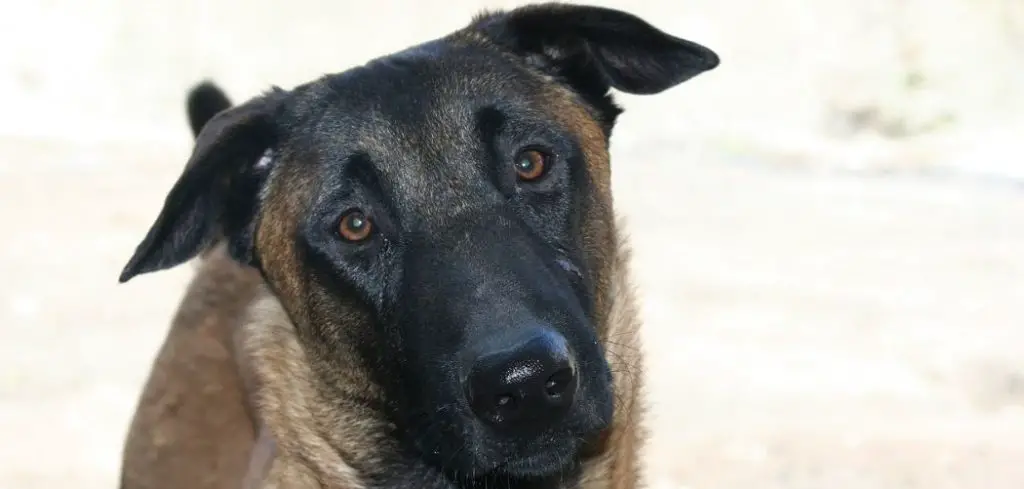When your dog is panting heavily and acting nervous, it’s hard not to worry. These signs often suggest something more than just a moment of excitement — they can be linked to pain, illness, or emotional distress.
We outline the common causes of a dog panting and acting nervous, what you can do at home, and when to seek veterinary help.
Dog Panting and Acting Nervous — Why It Happens
Panting and nervous behavior often go hand-in-hand when dogs are experiencing stress, pain, or underlying health issues. These symptoms may arise from anxiety, gastrointestinal discomfort, heat exhaustion, or even more serious conditions like heart disease.
Some dogs may show these signs due to trauma, noise sensitivity, or side effects from medications. The behaviors are your dog’s way of signaling that they don’t feel safe or well.

Common Causes of Dog Panting and Acting Nervous
Anxiety or Fear
Anxiety is one of the most common reasons a dog will pant and appear nervous.
Triggers include loud noises like thunder or fireworks, unfamiliar environments, separation from their owner, or even new people or pets in the home.
The panting comes from increased heart rate and adrenaline release, while nervous behaviors like pacing, whining, or hiding may also appear.
Chronic anxiety can disrupt your dog’s sleep, appetite, and overall quality of life.
Read more: Dog Panting and Not Eating (What’s going on?)
Pain or Discomfort
Dogs often mask pain, but panting and nervousness are two key signs something may be hurting them.
This could be from arthritis, a dental issue, an injury, or internal discomfort like bloating or gastrointestinal pain.
They may seem restless, resist being touched, or have trouble settling down.
Pain that surfaces suddenly or grows more intense over time always deserves a vet’s attention.
Nausea or Digestive Trouble
When a dog feels nauseous, they often pant and appear uneasy or restless.
Causes range from dietary indiscretion (eating something they shouldn’t have) to chronic issues like gastritis or acid reflux.
Dogs may lick their lips frequently, refuse food, or drool in addition to panting.
This behavior may intensify after meals or in the early morning when the stomach is empty.
Heart or Respiratory Conditions
Panting is a primary symptom of reduced oxygen levels caused by heart disease or respiratory disorders.
These dogs may also appear nervous because they feel breathless or uncomfortable but can’t communicate the sensation.
Look for signs like coughing, fatigue, or a bluish tint to the gums or tongue.
These are serious warning signs that should never be ignored.
Heat Stress or Overexertion
Dogs can overheat quickly, especially in warm climates or after physical activity.
Panting is their way of cooling down, but if they’re also acting nervous or restless, it may signal they’re having trouble regulating their temperature.
Flat-faced breeds and overweight dogs are especially vulnerable.
If left unaddressed, mild heat stress can escalate to life-threatening heatstroke.
Medication Reactions or Toxins
Certain medications, including corticosteroids and painkillers, can cause panting and behavioral changes in dogs.
Toxins like chocolate, xylitol, or even some household plants may also lead to these symptoms.
Dogs may tremble, drool, vomit, or appear disoriented.
Always note any new substances your dog has ingested or medications that may be linked to the behavior.
What to Do If Your Dog Is Panting and Acting Nervous
Start by staying calm and creating a quiet, safe environment for your dog. Remove any stressors like loud noises, strangers, or other pets that may be making them anxious.
Make sure they have access to cool water and a comfortable place to rest. Sometimes a brief walk can help release nervous energy, especially for anxiety-related episodes.
Keep a journal of symptoms — when they occur, how long they last, and any changes in your dog’s routine, diet, or environment.
For anxiety, calming aids like pheromone diffusers, soft music, or anxiety wraps may provide relief. Never scold a nervous dog — it can make the behavior worse.
If your dog is on medication, speak with your vet about any possible side effects. Do not change dosages on your own.
When to Call or Visit Your Vet
Call your vet if your dog’s panting and nervous behavior are frequent, intense, or sudden with no clear cause.
If these signs are accompanied by vomiting, diarrhea, trembling, or collapse, seek immediate care.
Difficulty breathing, pale or blue gums, or refusal to eat are also red flags that warrant urgent attention.
If you suspect heatstroke, pain, or toxin exposure, don’t wait — emergency intervention can be life-saving.
Behavioral symptoms that last more than a few days or disrupt your dog’s quality of life should be professionally evaluated.
Read more: Dog Panting and Licking Lips at Night (How serious is it?)
Key Takeaway
When your dog is panting and acting nervous, it’s usually a sign that something deeper is going on — whether emotional, physical, or environmental.
Tune into the pattern of symptoms, adjust your dog’s surroundings for comfort, and involve your vet when needed.
Early attention makes all the difference in helping your dog feel safe, calm, and healthy again.
